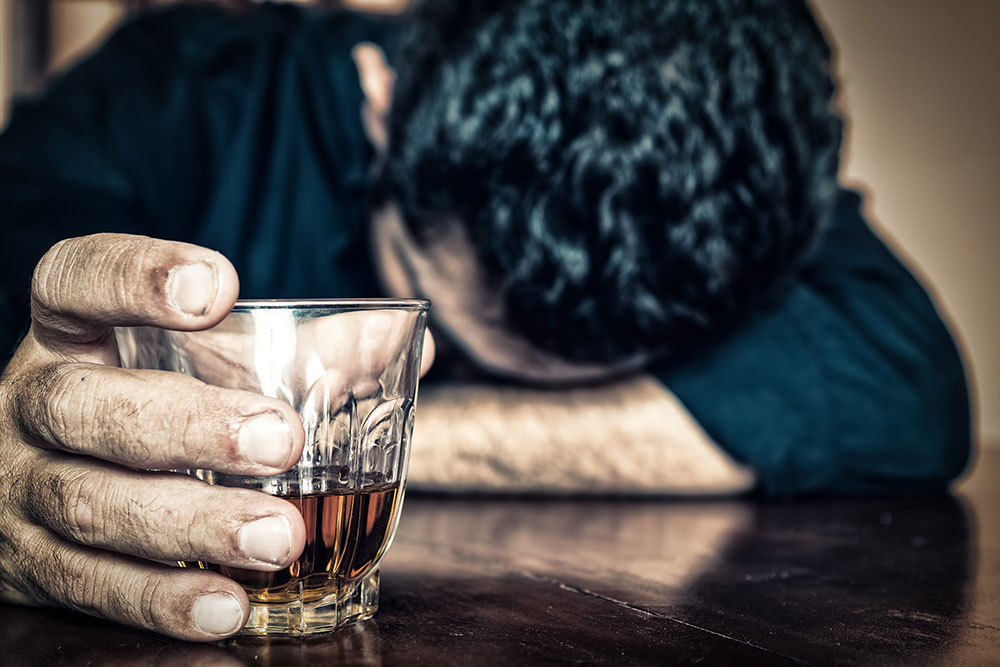The following 15 questions are based on the physical, emotional, and social signs of alcoholism, with answer choices ranging from less severe to more severe. After the questions, add up your score according to the scoring range and learn your likelihood of being an alcoholic.
"*" indicates required fields
What is Alcoholism?
Alcoholism, or alcohol use disorder, is a chronic condition characterized by an inability to control alcohol consumption despite adverse consequences. It includes a persistent desire to drink, increased tolerance, and withdrawal symptoms when not drinking, leading to serious health and social issues.
The causes of alcoholism include genetic predisposition, environmental influences, and psychological factors. Early intervention and continuous support are essential for addressing this condition effectively.
Statistics on Alcoholism
Alcoholism is a significant public health issue worldwide. According to the World Health Organization (WHO), approximately 2.6 million deaths annually are attributed to alcohol consumption, accounting for about 4.7% of all deaths globally. Additionally, an estimated 400 million people live with alcohol use disorders, with 209 million suffering from alcohol dependence.
In the United States, the National Institute on Alcohol Abuse and Alcoholism (NIAAA) reports that about 29.5 million people aged 12 and older had alcohol use disorder in 2022. This includes 17.4 million men and 12.2 million women. Alcohol-related liver disease remains a leading cause of alcohol-related deaths, significantly contributing to nearly 50% of all liver disease deaths in the country.
What are the Warning Signs of Alcoholism?

Alcoholism can manifest in a variety of ways. Identifying the early warning signs can help identify when someone may need help.
- Increased Tolerance: Needing more alcohol to feel its effects or noticing that the same amount of alcohol has less effect than before.
- Loss of Control: Inability to limit the amount of alcohol consumed, even if intending to drink less.
- Neglecting Responsibilities: Not meeting key obligations at work, school, or home due to alcohol consumption.
- Spending a Lot of Time Drinking: Spending a significant amount of time drinking, thinking about drinking, or recovering from drinking.
- Giving Up Activities: Reducing or abandoning hobbies, social activities, or other interests in favor of drinking.
- Continuing to Drink Despite Problems: Continuing to drink even though it causes or exacerbates physical, social, or interpersonal problems.
- Unsuccessful Attempts to Cut Down: Wanting to cut down or stop drinking but being unable to do so.
- Drinking in Dangerous Situations: Engaging in risky behaviors while or after drinking, such as driving or operating machinery.
- Cravings: Experiencing strong urges or cravings to drink.
Physical Signs of Alcoholism
The body can also present many signs of Alcohol Use Disorder (AUD). For many people, their body’s reaction to alcohol is what motivates them to seek treatment.
- Red or flushed skin
- Bloodshot eyes
- Poor coordination
- Tremors or shaking
- Excessive sweating
- Weight changes
- Poor personal hygiene
- Bruises or injuries
- Fatigue and weakness
- Dry skin and brittle hair/nails
- Facial puffiness
What to Do if You Think You Have Alcoholism
If you believe that you or a loved one might have Alcohol Use Disorder, it is vital to act promptly.
Consult a healthcare provider for a thorough assessment and recommendation. A medical professional can help you understand the severity of your condition and discuss treatment options.
Organizations like Alcoholics Anonymous (AA) provide peer support and a sense of community. Attending meetings can offer you encouragement and understanding from others who are also working towards sobriety.
Learn about AUD to understand the condition and empower yourself to make well-informed choices regarding your health. Consider reading books, articles, and reputable websites dedicated to alcohol use disorder and its treatment.
Don’t hesitate to talk to family or friends about your concerns. Having a solid support system can make a significant difference in your recovery journey. Let your loved ones know how they can help you, whether by providing emotional support or allowing you access to professional resources.
How Alcoholism is Treated

Alcoholism treatment typically involves a combination of detoxification, therapy, medication, and support groups. Here’s a detailed look at the treatment process:
Detoxification, or medical detox, is the first step in treating alcoholism. This process involves removing alcohol from the body and managing withdrawal symptoms, which can range from mild to severe and can include:
- Anxiety
- Tremors
- Nausea and vomiting
- Sweating
- Irritability
- Seizures (in severe cases)
- Delirium tremens (DTs), a severe form of withdrawal that can be life-threatening
Detox is typically conducted in a medical facility where healthcare professionals can monitor the patient and provide medications to alleviate withdrawal symptoms and prevent complications.
Inpatient and outpatient rehabilitation programs offer essential support for individuals recovering from alcoholism, tailored to different levels of need. Inpatient rehab provides a structured, distraction-free environment for recovery, typically lasting 30, 60, or 90 days.
Outpatient rehab is suitable for those with mild to moderate alcoholism who do not require 24/7 supervision. These programs allow individuals to live at home while attending treatment sessions and offer therapy, counseling, and regular medical check-ins. Both inpatient and outpatient programs provide comprehensive care and support tailored to the individual’s needs.
Behavioral therapies are crucial in treating alcoholism, as they help individuals change their drinking behaviors and develop healthier coping mechanisms. Common therapies include:
- Cognitive-Behavioral Therapy: Also known as CBT, Cognitive Behavioral Therapy focuses on identifying and changing negative thought patterns and behaviors related to alcohol use.
- Motivational Interviewing: MI Therapy helps individuals find the motivation to change their drinking habits and commit to treatment.
- Contingency Management: Popular for those who are externally motivated, contingency management provides incentives for maintaining sobriety and participating in treatment activities.
Support groups play a vital role in long-term recovery. Groups like Alcoholics Anonymous (AA) and SMART Recovery offer a community of individuals who share similar experiences and provide mutual support.
Aftercare plays a crucial role in sustaining long-term sobriety. It may involve ongoing therapy to resolve any remaining issues. Sober living homes offer support and accountability during the hard post-treatment period.
Heal from Alcoholism at Principles Recovery

Principles Recovery offers comprehensive treatment programs designed to address the complexities of alcohol use disorder. If you or someone you care about is battling alcoholism, Principles Recovery is ready to help you achieve a healthier, alcohol-free life. Reach out to us today to begin your path to recovery.
